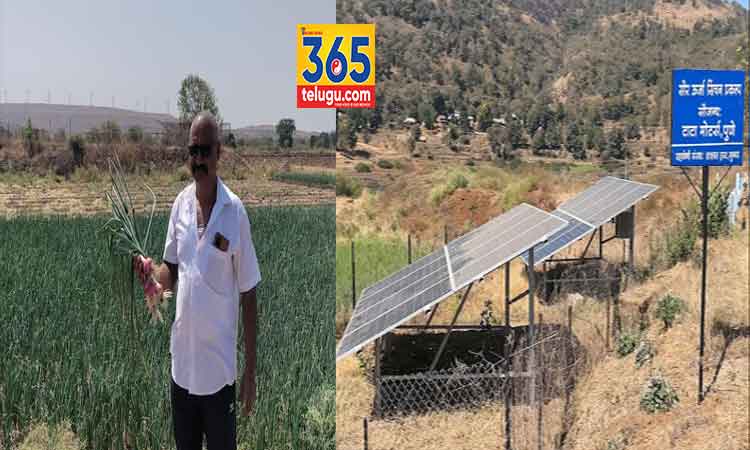365telugu.com online news,Mumbai, September 18, 2025: Tata Motors unveiled its 11th Annual Corporate Social Responsibility (CSR) Report, “Expanding Circles of Care: Deeper Connections, Lasting Impact,” on Tuesday. The report underscores the company’s community-driven strategy for inclusive growth, emphasizing convergence of people, policies, and purpose to foster scalable, sustainable progress. During FY25, Tata Motors’ CSR efforts reached over 1.47 million individuals nationwide, with 56% from Scheduled Caste (SC) and Scheduled Tribe (ST) groups.
Amid challenges like climate extremes and widening socio-economic gaps, Tata Motors intensified its focus on marginalized communities, evolving from project execution to holistic systemic change. Operating in 109 aspirational districts, the firm’s CSR model prioritizes replicable strategies aligned with national agendas and local needs.
Vinod Kulkarni, Head of CSR at Tata Motors, stated, “Broadening our circle of care involves integrating the sidelined into the spotlight. Whether it’s fostering sustainable livelihoods or rehabilitating ecosystems, we’re co-designing equitable solutions for enduring results. Guided by our ‘more for less for more’ ethos, we amplify outcomes through efficient resource use and government synergies to deliver real value to the most vulnerable.”
Key Highlights from the FY24-25 Annual CSR Report

Scaling Up Water Conservation
With 66% of rural Maharashtra reeling from drought, Tata Motors’ water management initiative revived 356 water sources in 10 districts, boosting storage by 700 crore litres. This supported 7,000 farmers and 2.9 lakh villagers via government collaborations, local stewardship, and tech-enabled tracking. Looking to FY26, the company targets restoring 1,000 water bodies in over 25 districts.
Empowering Rural Heartlands
Launched in 2018, the Integrated Village Development Programme (IVDP) now spans 16 gram panchayats in Maharashtra, Gujarat, and Uttar Pradesh. In FY25, it extended to Uttar Pradesh’s Shravasti and Balrampur—two of India’s most backward districts per NITI Aayog’s Multidimensional Poverty Index. Tied to 13 UN Sustainable Development Goals, nine local focus areas, and 48 government programs, IVDP has uplifted over 18,000 residents in Maharashtra’s tribal-dominated Palghar region.
Promoting Respectful Livelihoods

In Pune, partnering with Kashtakari Panchayat, Tata Motors aided 8,000 waste-picker households, linking 1,814 women to health programs and aiding child education and skills training. Four young participants secured apprenticeships at Tata Motors via the National Apprenticeship Promotion Scheme (NAPS).
In Maharashtra, teaming with Nirmaan NGO, the company freed 47 bonded laborers and launched the Kamgar Samman and Suvidha Kendra in Bhosari, providing legal support and benefits access to 12,000+ migrant workers.
Cultivating Inclusive Workplaces
Tata Motors hired 141 Persons with Disabilities (PwDs) and 17 transgender employees across facilities in FY25, backed by progressive policies, awareness sessions, and tailored onboarding—establishing standards for diversity and fairness.
ఇది కూడా చదవండి…టాటా ప్లే, వార్నర్ బ్రదర్స్ సహకారంతో కార్టూన్ నెట్వర్క్ ఫరెవర్: బాల్య జ్ఞాపకాలను తిరిగి మేల్కొల్పే ప్రయాణం..
Boosting Educational Outcomes
The ENABLE initiative coached over 19,000 students for entrance exams, with 8,000 taking JEE Mains and 28% succeeding. In Mumbai, targeted tutoring in 69 Brihanmumbai Municipal Corporation (BMC) schools achieved a 96% SSC pass rate, exceeding the municipal benchmark.
Tackling City Malnutrition
Project Aarogyasampanna screened 1,000+ children in Mumbai’s Trombay slums, slashing severe and moderate malnutrition by 90%. It also equipped parents with nutrition know-how and set up neighborhood health resource centers.

Surging Employee Engagement
More than 19,000 Tata Motors staff volunteered over 2 lakh hours for societal good, from health campaigns and eco-drives to disaster relief—embodying the organization’s ethos of empathy and civic duty.
Tata Motors is steadfast in advancing its CSR agenda via equitable expansion, institutional reforms, and community fortitude. Through evidence-based alliances, it will amplify eco-friendly interventions, aligning with India’s vision for balanced, resilient advancement.

